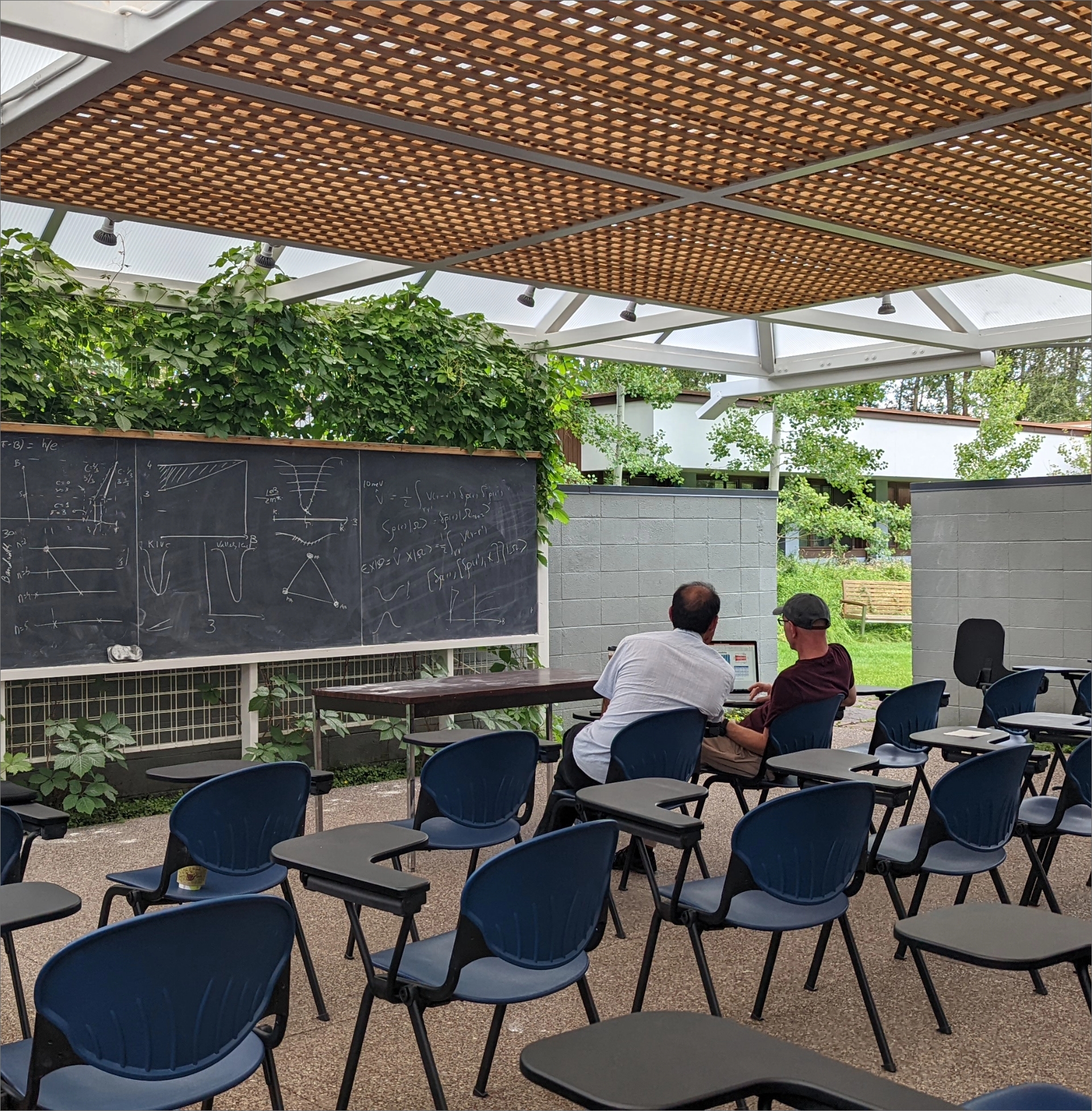
Summer Program
Collider Physics at the LHC and Beyond
June 15–July 13, 2025
Organizers:
Yang Bai, University of Wisconsin Madison
Patrick Fox, Fermilab
Maxim Perelstein, Cornell University
Andrea Thamm, University of Massachusetts Amherst
Experiments at energy-frontier colliders remain an indispensable tool in exploring elementary particle physics. The current run of the Large Hadron Collider (LHC) will effectively double the integrated luminosity collected at the 13.6 TeV center-of-mass energy, while the upcoming luminosity upgrade (HL-LHC) will further increase it by an order of magnitude. The detectors will also be upgraded in preparation for the HL-LHC, bringing in exciting new capabilities. At the same time, planning has begun in earnest for the future energy-frontier colliders which will eventually succeed the LHC. Proposals for electron-positron Higgs factories, a muon collider, and a next-generation hadron collider reaching energies of order 100 TeV, are under active consideration in the community. This workshop will bring together theorists and experimentalists interested in probing the Standard Model at the energy frontier and searching for physics beyond the Standard Model at the LHC and future colliders.
Summer Workshops
The summer program, running for 16 weeks from late-May to mid-September, emphasizes exciting open problems at the cutting edge. Two or three concurrent workshops, each with a specific focus selected for timeliness and the potential for breakthroughs and of two to five weeks in length, establish the main themes of each week, with twelve or thirteen different workshops each summer, balanced across fields including particle physics, string theory, astrophysics and hard and soft condensed matter physics, as well as emerging areas including biological physics, ultra-cold atom physics, quantum information, and physical mathematics. Additional researchers participate in small working groups or as individual researchers. This framework is designed to maximize informal interactions and free discussion within each area and to promote cross-fertilization between different areas via the common language of theoretical physics. Participation in the summer program of the Aspen Center for Physics is by application and subsequent invitation only. View past workshops.
